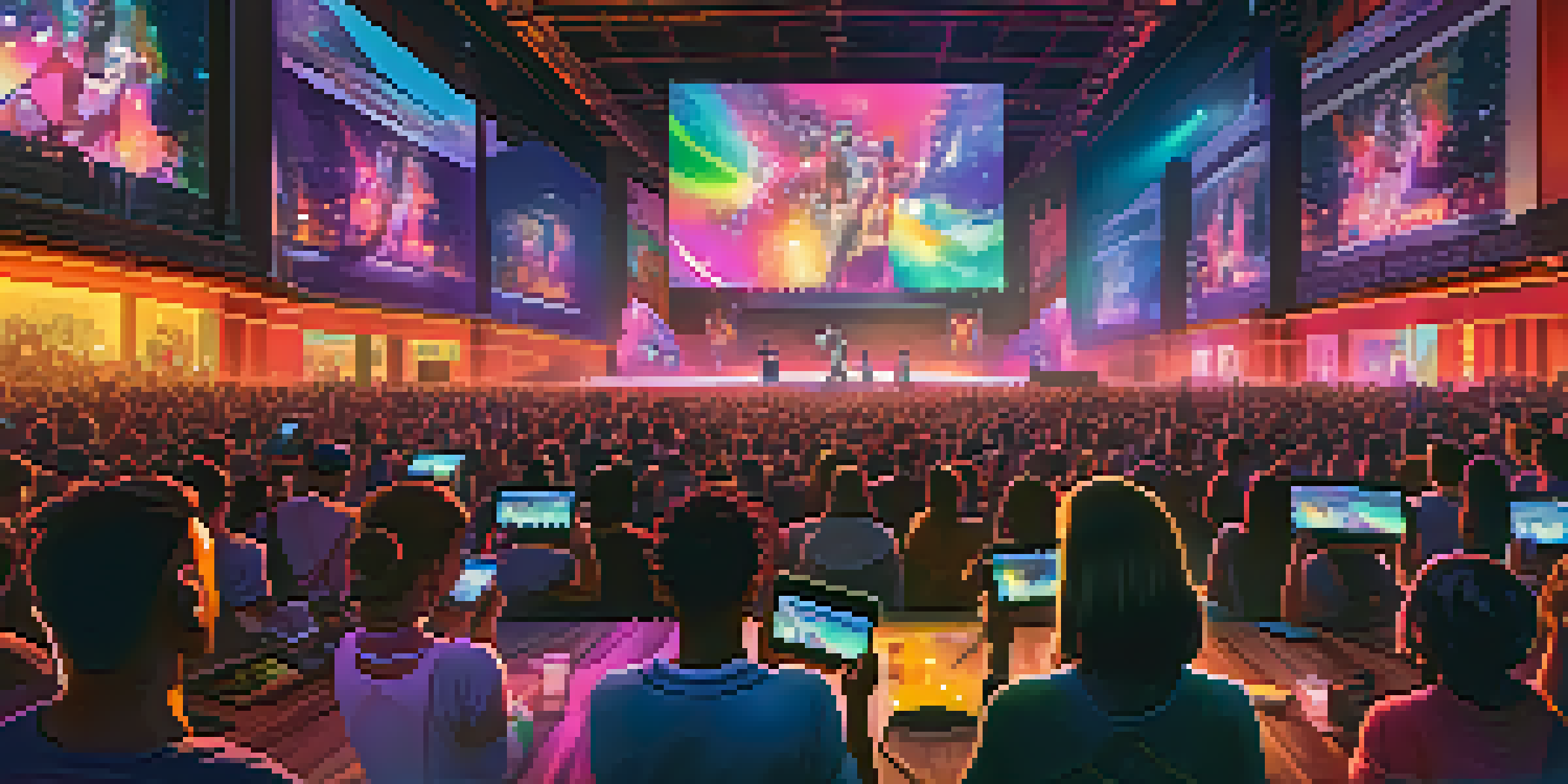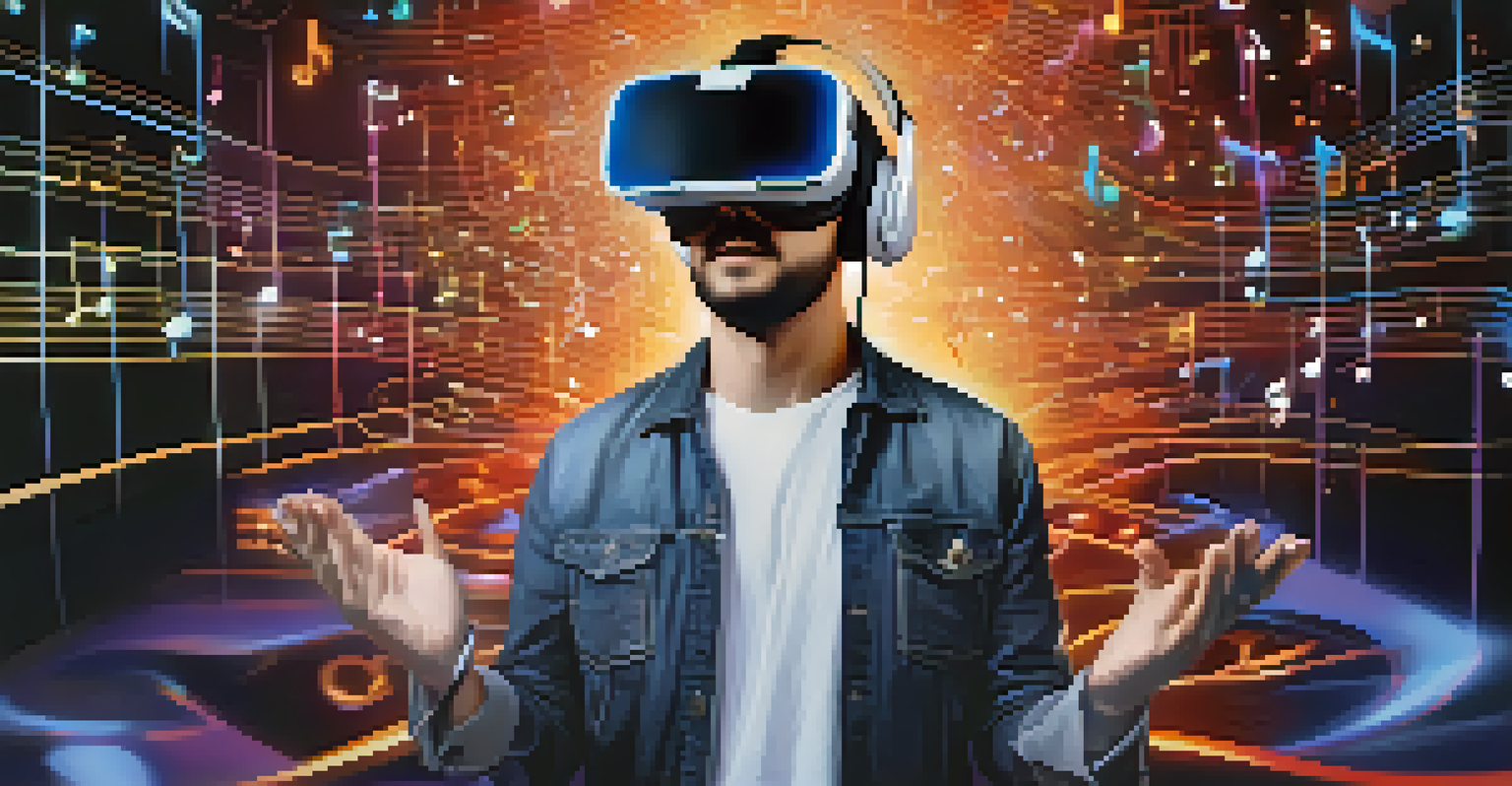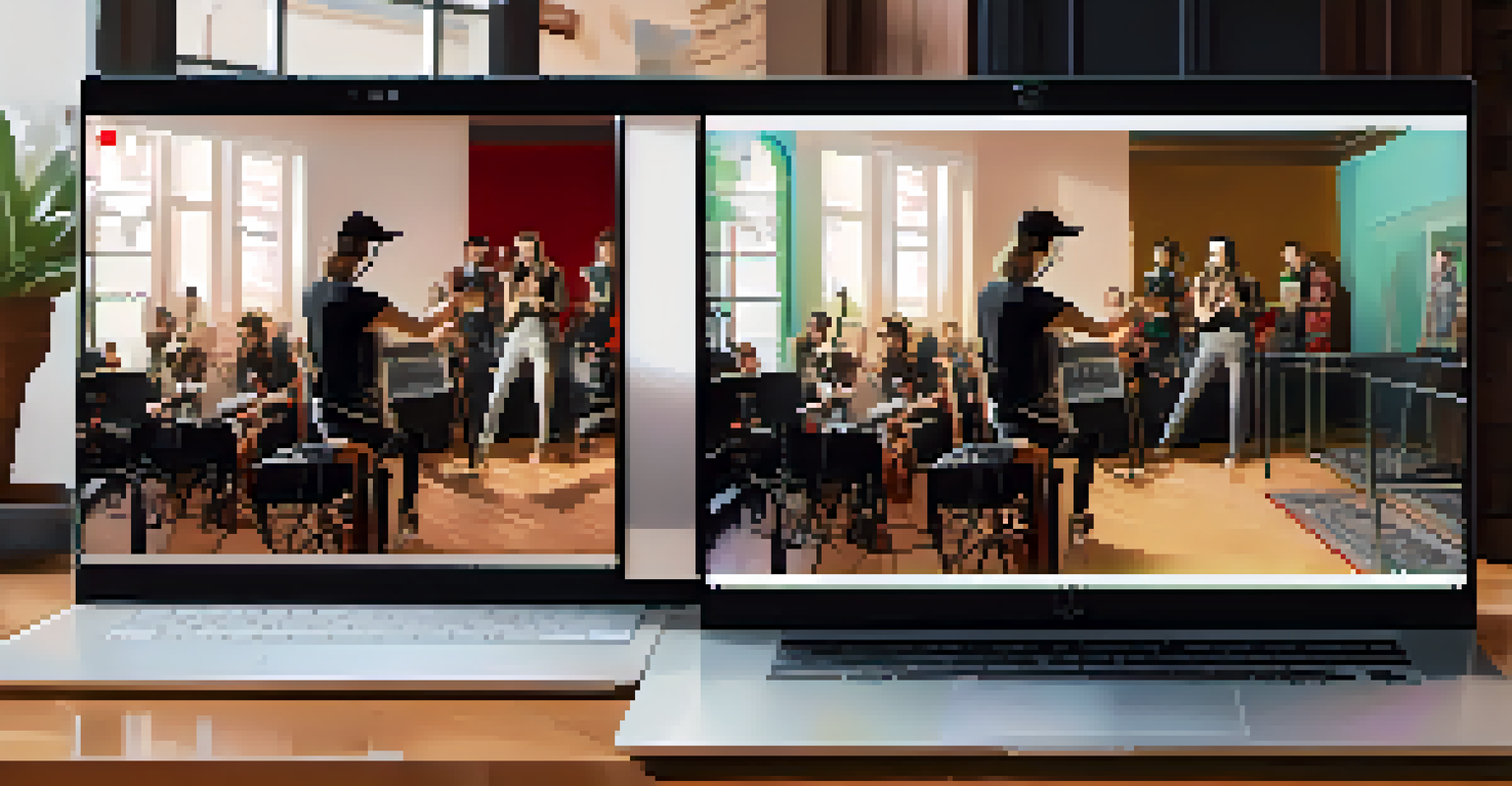Ethics of Virtual Concerts: Accessibility vs. Authenticity

Introduction to Virtual Concerts and Their Rise
In recent years, virtual concerts have surged in popularity, especially during events like the global pandemic. Artists began to utilize digital platforms to reach fans who could no longer attend live shows. This shift not only transformed the music industry but also opened up discussions about the ethical implications of such performances.
Music is the shorthand of emotion.
As we navigate this new landscape, two key concepts emerge: accessibility and authenticity. Accessibility refers to how easily fans can engage with these concerts, regardless of their location or financial situation. Authenticity, on the other hand, concerns whether these virtual experiences can truly replicate the magic of live performances.
By exploring these themes, we can better understand the benefits and drawbacks of virtual concerts and what they mean for both artists and fans.
The Accessibility of Virtual Concerts
One of the most significant advantages of virtual concerts is their accessibility. Fans from all over the world can enjoy performances from the comfort of their homes, eliminating geographical and financial barriers. For example, a fan in a remote area can now experience a concert that would have been impossible to attend in person.

Moreover, virtual concerts often come at a lower price point than traditional shows. This democratization of music allows fans from various economic backgrounds to engage with their favorite artists, creating a more inclusive environment. Additionally, online platforms can offer features like subtitles or sign language interpretation to accommodate diverse audiences.
Virtual Concerts Enhance Accessibility
Virtual concerts eliminate geographical and financial barriers, allowing fans worldwide to engage with their favorite artists from home.
However, while accessibility is a significant benefit, it raises questions about whether the essence of live music is fully captured in a digital format.
Authenticity vs. Virtual Experiences
Authenticity in music is often tied to the live experience—feeling the energy of a crowd, the spontaneity of performances, and the artist's connection with the audience. Critics argue that virtual concerts can lack these elements, leading to a more sterile experience. It's akin to watching a chef cook on a screen versus tasting the dish yourself; the latter is a sensory experience that can't be replicated digitally.
Technology has the power to connect people in ways we've never imagined.
Artists also face challenges in delivering that authentic feel during virtual performances. Technical issues, lack of physical audience feedback, and the limitations of digital platforms can all hinder the experience. This begs the question: can a virtual concert ever truly reflect the raw energy of a live show?
As we explore this tension between authenticity and accessibility, it's essential to consider how artists and fans navigate these evolving expectations.
The Role of Technology in Shaping Experiences
Technology plays a pivotal role in bridging the gap between accessibility and authenticity. Innovations such as virtual reality (VR) and augmented reality (AR) are beginning to offer immersive experiences that can mimic the thrill of live concerts. For instance, VR can transport fans into a virtual venue where they can interact with other concert-goers, creating a sense of community.
However, while these advancements enhance the experience, they also raise ethical questions. Is it fair to rely on technology to create an illusion of authenticity? Or does this detract from the true essence of music, which is often rooted in shared physical spaces and experiences?
Authenticity Challenges in Digital Shows
Critics argue that virtual concerts may lack the energy and connection of live performances, raising questions about their authenticity.
As we embrace these technologies, we must critically assess their impact on how we perceive and experience music.
The Impact on Artists and Their Creative Process
The shift to virtual concerts has significant implications for artists and their creative processes. Many musicians have adapted their performances to cater to online audiences, leading to innovative ways of engaging with fans. For example, some artists have incorporated interactive elements, such as live Q&A sessions, into their virtual shows, fostering a sense of connection.
However, this shift also presents challenges. Artists may feel pressured to produce content more frequently to maintain their online presence, potentially impacting their creative output. Additionally, the lack of live audience feedback can make it difficult for musicians to gauge the success of their performances.
As we consider the future of virtual concerts, it's essential to understand how these changes affect artists' well-being and artistic integrity.
Navigating Ethical Considerations in Virtual Concerts
As virtual concerts become more mainstream, ethical considerations must be addressed. One pressing issue is the potential for exploitation—both of artists and their fans. For instance, some platforms may prioritize profits over fair compensation for artists, undermining the very musicians they aim to support.
Additionally, there are concerns about data privacy and security. Fans engaging with virtual concerts often share personal information, raising questions about how this data is used and protected. Transparency in these areas is vital to building trust between artists, platforms, and audiences.
Technology Shapes Future Concerts
Innovations like VR and AR are creating immersive concert experiences, blending accessibility with a semblance of live authenticity.
By addressing these ethical dilemmas, we can work toward creating a more sustainable and equitable virtual concert landscape.
The Future of Virtual Concerts: What Lies Ahead?
Looking ahead, the future of virtual concerts remains uncertain yet promising. As technology continues to advance, we may witness even more innovative formats that blend accessibility and authenticity. This could lead to hybrid events that combine live performances with virtual elements, offering fans the best of both worlds.
Furthermore, the lessons learned from the rise of virtual concerts can inform how we approach live music in the future. Artists may leverage these experiences to create more inclusive and diverse performances, reaching audiences that were previously left out.

Ultimately, the future of virtual concerts will depend on the collective efforts of artists, fans, and technology providers to create experiences that honor the essence of music while embracing the possibilities of the digital age.